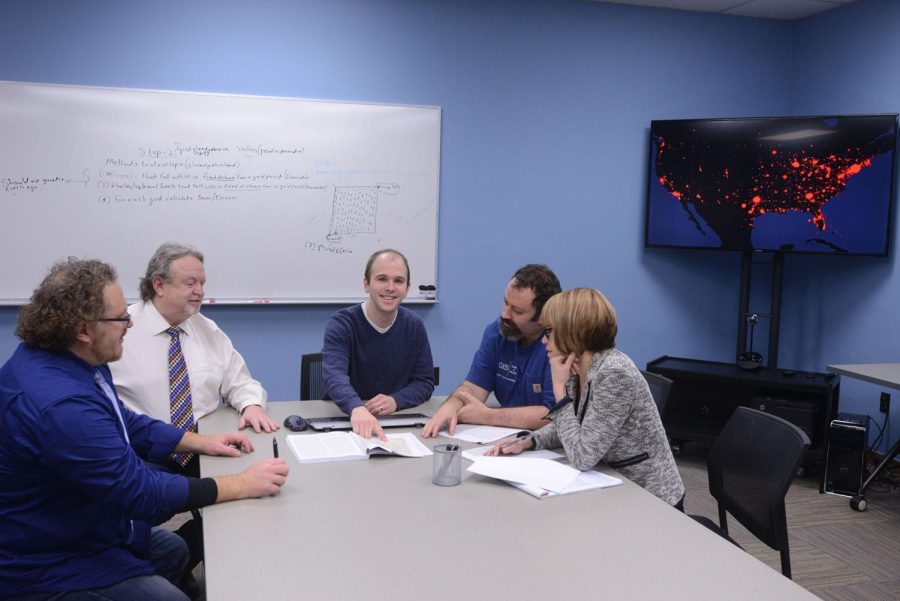Kent State receives grant for “Fearbola” research
February 1, 2015
Scientists at Kent State are conducting research on how social media can be a valid means of research for measuring disease outbreaks.
The project, known as “RAPID: Capturing Behavioral Response and Perceived Risk to Ebola Using Social Media,” or “Fearbola,” is measuring how much the term Ebola was mentioned in Kent on Twitter and through phone and Internet surveys.
“It’s a collaborative project,” said Eric Shook, the principal investigator and assistant professor of geography. “It was really spurred by the response we were seeing on campus and kind of the nervousness of students, staff and faculty and those surrounding campus and their response to the potential risk of Ebola.”
Shook’s collaborative project features a team that consists of co-principal investigators, who are also professors from the geography, sociology and public health departments.
With the expedient nature of the more than $41,000 RAPID grant, the team met almost immediately after news dropped that Amber Vinson had arrival in Northeast Ohio. Vinson, (an Ebola survivor and Kent State alumna), after she contracted the virus while caring for Thomas Duncan at Texas Health Presbyterian Hospital in Dallas, Texas. Duncan, a Liberian national, died of the disease Oct. 8.
The team received the grant to conduct research on the spread of fear, misconceptions and information on Ebola, Shook said. They measured the times involving Duncan’s arrival to America and Vinson’s arrival to Northeast Ohio.
Shook said the team has spent more than $10,000 buying tweets from Twitter that share hashtags with terms such as “Ebola,” “fear” and “Fearbola.”
The team is also conducting phone and Internet surveys with students and faculty at Kent State. The surveys measure their connection involving information relating to the news of Ebola, assistant professor of sociology Gregory Gibson said.
“(The email survey) assesses… each survey taker’s perceived risk about contracting Ebola,” Gibson said. “(The questions are) assessed from very low to very high.”
The survey gauged participants in their knowledge of Ebola and if they changed their habits accordingly, Gibson said.
The team plans to apply for a larger grant to expand their research and study more of America through the surveys and tweets gathered by the team, said Chris Woolverton, professor of environmental health sciences.
“(After this) we can say within some confidence interval that social media is a predictor of significant health events,” Woolverton said. “The sample size is somewhat low so to be able to purchase more Twitter data, and then marry that to Facebook data, Yik Yak data and other sources of social media to get a very substantial sample size.”
With the knowledge acquired from Kent State, the team plans to expand to studying a quadrant of America, with the rest of the country being a grand goal.
Contact Jacob Runnels at [email protected].












